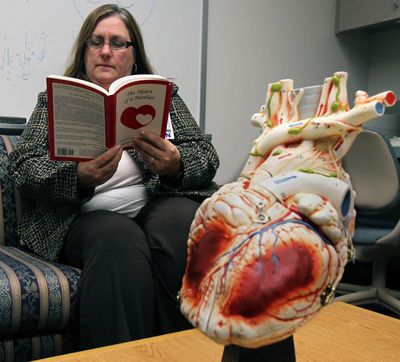Lifelong treatment for heart urged
Study: Children with heart disease benefit from ongoing medical care

AKRON, Ohio – When it comes to matters of the heart for children, growing up doesn’t necessarily mean a patient outgrows the need for specialized medical care.
National guidelines recommend about half the adult survivors of complex congenital heart disease receive lifelong care from a physician who specializes in heart defects that were present at birth. However, a study recently published in the national professional journal Pediatrics found many parents don’t realize the need for their children to get ongoing care from a specialist into adulthood.
Akron Children’s Hospital was among nine pediatric cardiology centers nationwide that participated in the study, led by Children’s Hospital Boston.
The researchers surveyed parents of patients with complex heart problems – the type in which lifelong care would be recommended. Although the majority realized their child would need lifelong care, less than half (44 percent) thought the care should be provided by a cardiologist specially trained to treat adults with congenital heart defects.
Thanks to medical advances, children born with complex heart defects that would have been fatal decades ago are surviving into adulthood, said Kathy Ackerman, nurse manager for the Heart Center at Akron Children’s Hospital and one of the study authors. An estimated 1 million adults are living with congenital heart defects nationwide.
“Adult cardiologists would know how to fix a heart that was in bad shape because you ate too much, didn’t exercise and smoked all your life,” Ackerman said. “Those are acquired things.”
However, she said, adult survivors of congenital heart disease can face unique problems and needs because of their condition and the surgery they underwent years earlier.
“It’s so important that the message gets out and people get the care they need,” she said.
As an adult survivor of a congenital heart defect, Denise Edington of Doylestown, Ohio, knew the importance of continuing specialized care for her son, Scott, who was born with a complex heart problem 23 years ago.
Her son has had two heart operations and continues to be seen regularly by a congenital heart specialist at Akron Children’s Hospital.
“The great thing is that there are now ways that these children can survive,” she said. “They just need to have follow-up care that is appropriate. It is crucial to have that education.”